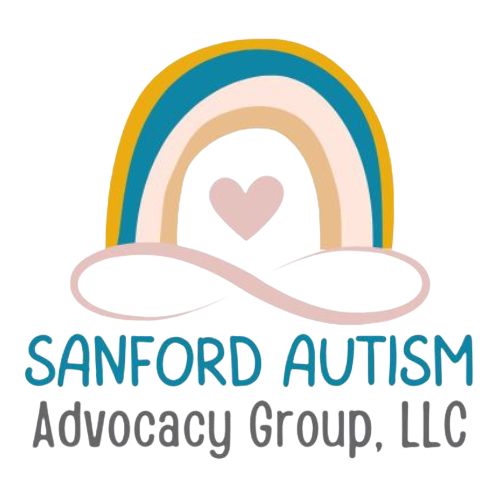|
11/22/2017 3 Comments Just Quirky or Autism? Identifying the Signs of Autism and Asperger’s Syndrome What do actors Dan Aykroyd and Daryl Hannah have in common? Both were identified with a "mild form of Autism" as young children. Both successful, but considered quirky and struggled socially. So, what is the difference in just being quirky and an actual Autism diagnosis? Recently I offered a workshop for parents and community members titled "Just Quirky or Autism?" The purpose was to raise awareness and to help in identifying the signs of Autism Spectrum Disorder. I believe that this is especially challenging yet needed for individuals with Asperger's Syndrome, now classified as Autism Spectrum Disorder-Level 1 (DSM-5, 2013) also known as "High-Functioning Autism". So many of these children and adults are misdiagnosed and misunderstood, impacting their academics, social lives and careers. So, where do we begin? First, let’s consider the term “quirky”. Merriam-Webster defines quirky as "different from the ordinary in a way that causes curiosity or suspicion". Does this describe someone you know? Before deciding, let’s look closer at High-Functioning Autism and discuss the characteristics. For consistency, we will use the term Asperger's Syndrome for the rest of this article since it is a more familiar term. Let us discuss just three factors to consider in its identification: 1. Immaturity in managing emotions Individuals with Asperger’s Syndrome have difficulty regulating their emotions and matching them appropriately to a situation. For example, their emotional response to a small situation may be very intense, such as tantruming when something falls on the floor or breaks. In girls, this may also present as separation anxiety when leaving a parent. Research reveals that those with Asperger’s Syndrome tend to be quite "black or white" emotionally or “all or nothing”. 2. Exceptional abilities in a preferred area There may be a high interest in one area, such as trains, swimming or planets for those with Asperger’s Syndrome. This interest may monopolize their thoughts and conversation. However, although cognitively intact, these individuals may struggle with attention and learning new concepts. As adults, they may be encouraged to pursue their passion in some degree as a hobby or career. 3. Sensory challenges Specific sounds, smells and tastes may be offensive to someone with Asperger's Syndrome. For example, they might avoid wearing certain clothes or eating certain foods because of the textures. Another example is covering their ears in response to or anticipation of an unpleasant sound. This sound may not be noticeable or bothersome to others, which may make their behavior seem odd. We noticed this early on in our daughter. One day at age 18 months, we noticed that she was quite fussy while riding in the backseat of the car. After several trials, we realized that she was quite irritated by the clicking sound of the fingernail clippers that I was using in the front seat. Another early example of the differences in our daughter "Amazing Grace". Research shows that most individuals with Asperger's Syndrome are identified during the early school years, as the social demands of life increase. However, many adults are now discovering the diagnosis for themselves. This is likely due to the increased visibility of Autism in the media, internet searches and/or suggestions from family and friends. Are you considering a diagnosis of Asperger's Syndrome for your child? Are you an adult considering this diagnosis for yourself? Here are a few resources: 1. Autism Speaks: Asperger's Syndrome 2. Autism Speaks: Adults References: Diagnostic and Statistical Manual of Mental Disorders (DSM-5, 2013); The Complete Guide to Asperger's Syndrome (T. Attwood, 2015); autismspeaks.org; merriam-webster.com
3 Comments
2/8/2021 11:07:53 am
It stood out to me when you said that the texture of certain foods or clothes can be an issue for those with autism. I've noticed my son gets really overwhelmed and angry whenever he has to wear a pair of socks he doesn't like. Thanks for letting me know it's a sign of autism so I can have him evaluated soon and pursue online therapy for him if necessary.
Reply
Fai
2/1/2024 07:51:12 am
This article needs updates, annd in its current state is offensive to a marginalized group.
Reply
Crystal Sanford
2/2/2024 10:01:21 am
Hello Fai. Thank you for this comment. We hear you and appreciate the feedback. This article was written several years ago, and we have updated articles with more reccent research for families to consult.
Reply
Your comment will be posted after it is approved.
Leave a Reply. |
AuthorCrystal Sanford, M.Ed., M.A. CCC-SLP, ASDCS is an Educational Consultant, IEP & Autism Advocate and Speech-Language Pathologist. She is also the host of inspiring podcasts, Thriving Special Families and Thriving Autism Families! Her passion is advocating STRONG alongside fellow Autism and other fellow parents of neurodiverse children, helping them to persistently pursue what their children deserve at school. In her free time, she enjoys gardening and spending time with her husband and two children in San Diego, CA. Archives
November 2023
CategoriesAll Amazing Grace Autism Info IEP Advocacy SAC Company Info Thriving Special Families Tips And Strategies |
Photos from Ivan Radic (CC BY 2.0), Ben Taylor55, Oregon State University, C. VanHook (vanhookc), Rod Waddington, bobobahmat, Ivan Radic, marcoverch, Szhlopp, quinn.anya, bennylin0724, Gamma Man, Lorie Shaull, vhines200, davidstewartgets, truewonder, wuestenigel, ecosistema urbano, Phil Scoville, Our Dream Photography (Personal), Alexander king79, Dick Thomas Johnson








